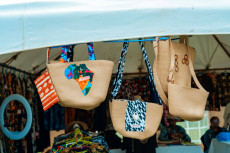It’s common practice for many Kenyans to walk into a local shop and buy an antibiotic tablet for as little as Ksh 20 to Ksh 50. It feels convenient, even harmless. But what seems like a quick fix today could become a serious health problem tomorrow.
One of the biggest risks of casually consuming antibiotics without a prescription is resistance. Over time, your body may no longer respond to these drugs, rendering them ineffective when you truly need them.
This phenomenon known as antimicrobial resistance (AMR) can lead to treatment failure, prolonged illness, and the spread of drug-resistant bacteria. When antibiotics stop working, your treatment options shrink, healthcare costs rise, and in some cases, the outcome can be fatal.
But resistance isn’t the only concern. Careless antibiotic use can trigger a range of side effects, including nausea, vomiting, and diarrhea. These drugs can also kill beneficial bacteria in your gut, disrupting digestion and weakening your immune system.
For people with existing liver or kidney conditions, the risks are even higher. Allergic reactions—rashes, swelling, itching can escalate into life-threatening emergencies. Though rare, complications like heart and joint problems have also been linked to antibiotic misuse.
So while popping a pill from the corner chemist might seem like a shortcut to recovery, it could be setting you up for long-term health setbacks.
AMR occurs when bacteria, viruses, fungi, and parasites evolve to resist the drugs designed to kill them. As a result, infections become harder—or even impossible—to treat. This increases the risk of disease spread, severe illness, and death. According to the World Health Organization, AMR is one of the top global health threats of the 21st century.
To raise awareness and drive action, the
World AMR Awareness Week (WAAW) is observed every year from November 18 to 24. The 2025 theme, “Act Now: Protect Our Present, Secure Our Future,” calls for urgent, coordinated efforts to tackle AMR across all sectors human health, animal care, agriculture, and the environment.
This year’s campaign builds on the momentum of the 2024 United Nations General Assembly High-Level Meeting on AMR. It urges governments, civil society, healthcare providers, veterinarians, farmers, environmental actors, and the public to turn political commitments into real, life-saving interventions.
That means investing in surveillance systems, ensuring fair access to quality medicines and diagnostics, supporting innovation, and building resilient health systems.
The message is clear: AMR isn’t a distant threat. It’s already here—affecting our health, food systems, and economies. And unless we act boldly and collectively, the cost will be devastating. So the next time you think of buying antibiotics over the counter, think again. The future of medicine may depend on it.
Stay connected with us on WhatsApp and X for instant updates and breaking news as it happens.


-1772541181-md.jpg)




-1772457721-md.png)
-1772541181-sm.jpg)



